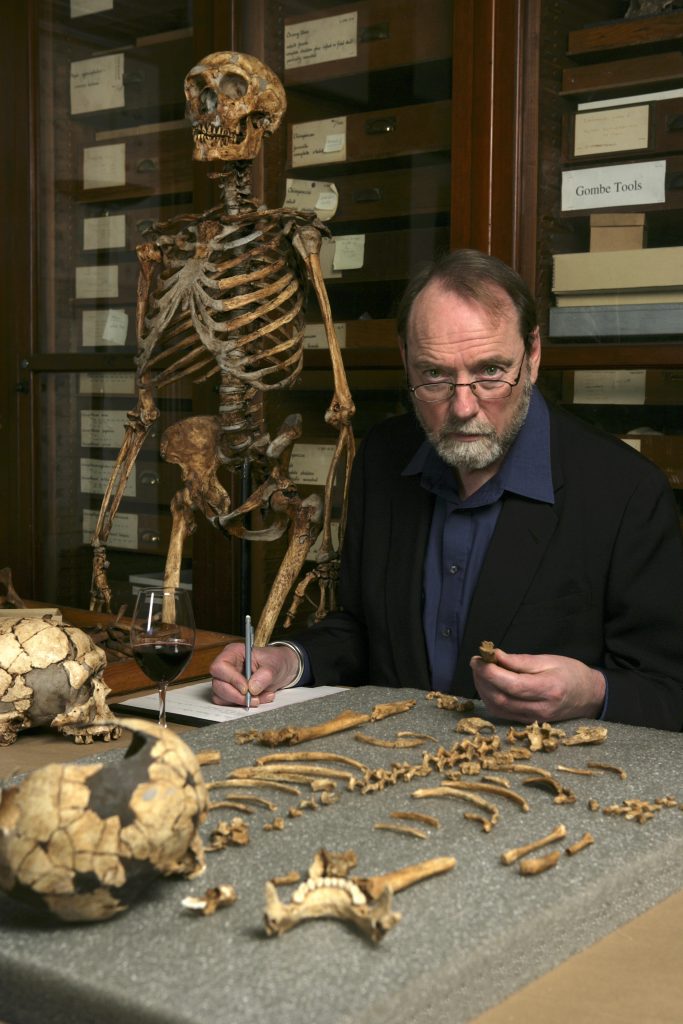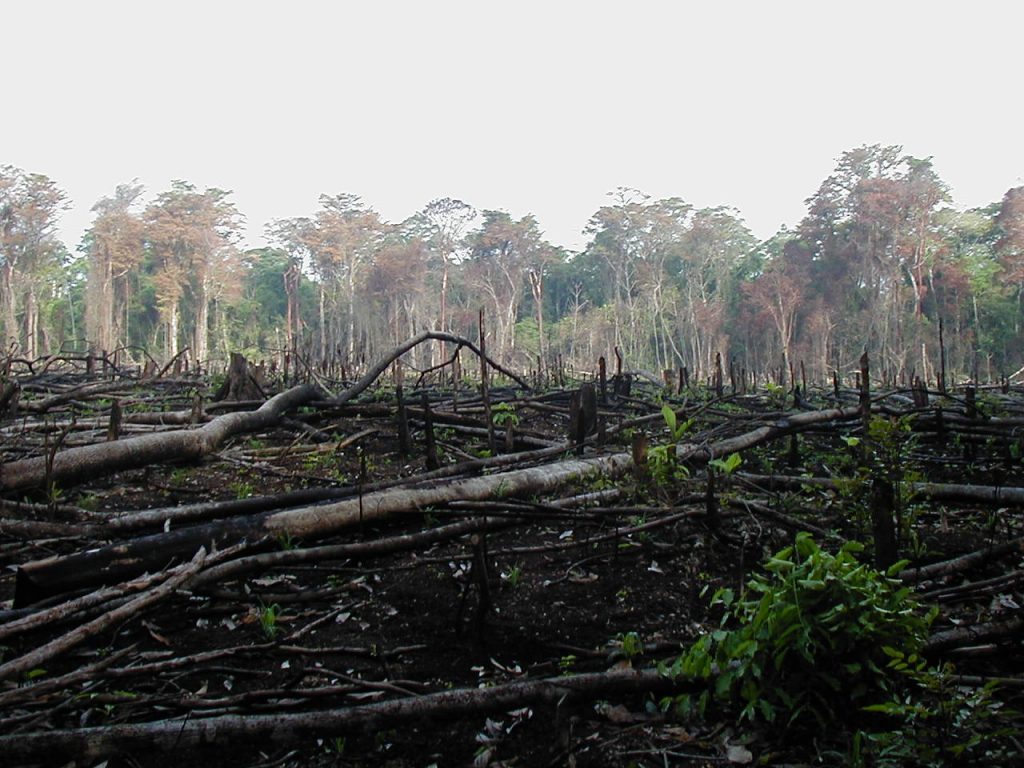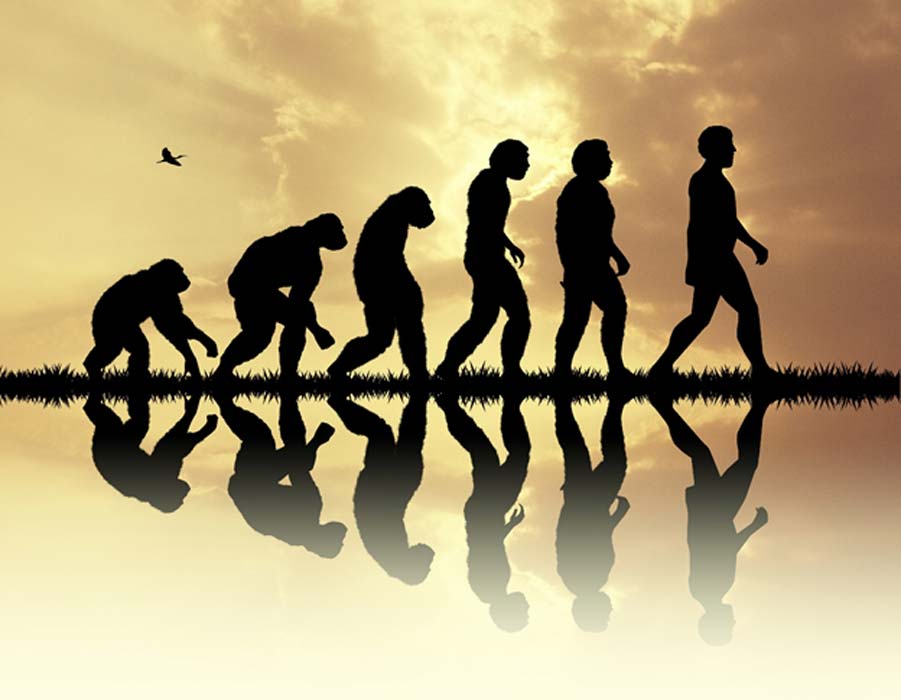Is anything beyond random natural selection happening with the evolution of potentially intelligent life on Earth and presumably on other life-bearing planets?
Natural selection isn’t the driver of evolution; evolution is the driver of natural selection. But what drives evolution, which is undeniably creative? Certainly not a creator standing apart from creation.
As blunt an instrument as natural selection is, and as non-linear as the evolution of the human brain has been (even in the hominem context), our species represents a quantum leap from all other life in the way of doing business.
In short, every species on Earth, except man, operates within an ecological niche. This appears to be true even of pre-human species such as Homo erectus, or paralleling human species such as the Neanderthals.
The question is: Can our prematurely named species, Homo sapiens, make the conscious leap from a potentially intelligent life form to an actually intelligent life form?

In “Extinct Humans,” Ian Tattersall and Jeffrey Schwartz write, “With the advent on Earth of Homo sapiens – or at least, of H. sapiens with modern behavior patterns…there has never been a more fateful arrival on the biological scene than that of our extraordinary species.” (Italics theirs)
Given how implacably mechanistic they are in their view of evolution, Tattersall and Schwartz’s use of the word “fateful” here is perplexing, if not contradictory. Fateful how, for whom and for what?
Fateful to the Earth? Obviously, given that man is bringing about the Sixth Extinction in the 3.5 billion year history of life on Earth.
And we are a sentient, supposedly sapient species. (For the Buddhists out there, who believe all life is sentient, I’m using the word to mean “conscious of sense perceptions.” And by sapient I mean, “wisdom, sagacity.”)
As Tattersall and Schwartz attest, “Quite simply, we have as yet no idea about how a mass of electrical and chemical discharges within the brain is converted into what we individually and subjectively experience as consciousness. To explain ourselves completely, we shall ultimately have to achieve this knowledge.”
The first part is correct, and reflects the holy grail of neuroscience. But it still doesn’t even address what we mean by consciousness, except as a given in human experience, much less whether there are higher forms of consciousness, derisively called ‘mystical experiences,’ which are accessible to us.
However, “achieving the knowledge of how a mass of electrical and chemical discharges within the brain is converted into what we individually and subjectively experience as consciousness” will not “explain ourselves completely.” The underlying premise is false, which is that consciousness is nothing more than what occurs within the skull.
In other words, even if we could achieve the knowledge of how the brain generates thought (which is actually what they’re talking about, rather than conscious awareness, which is much more mysterious), it would not even begin to “explain ourselves completely.”
Why do these philosophical questions matter? Because we need to explain ourselves adequately, as well as change radically, or we’re going run off the cliff as species.
As Roy Scranton says in an op-ed entitled, “I’ve Said Goodbye to Normal. You Should Too”: “Going back to normal now means returning to a course that will destabilize the conditions for all human life, everywhere on earth. Normal means more fires, more category 5 hurricanes, more flooding, more drought, millions upon millions more migrants fleeing famine and civil war, more crop failures, more storms, more extinctions, more record-breaking heat.”
An adequate explanation for why humans are such an anomalous, ecologically destructive species is necessary, though even if compelling, such an explanation wouldn’t be sufficient for us to change course.

As we stumble out of this global pandemic, enough human beings (and that is an unknowable number) have to realize, as Scranton says, that a return to “normal could well mean the end of global civilization as we know it.”
His prescription – ‘imagining a new way of life beyond this one, after the end of fossil-fueled capitalism,” simply doesn’t cut it however. Then what is the way ahead?
As Tattersall says, “A routine phenomenon in the histories of organisms is called ‘exaptation,’ whereby new characteristics arise in one functional context well before being recruited in another.”
Through random pathways, nature has exapted a creature on Earth with the capacity for insight and understanding, as well as for transcendence and communion with the immanent intelligence of the universe.
To make the transition from Homo sap to Homo sapiens we will therefore need both — an explosion of insight and understanding in a human brain that has been exapted for it, and an adequate philosophical and scientific explanation for why we are so different and destructive as a species.
Martin LeFevre

